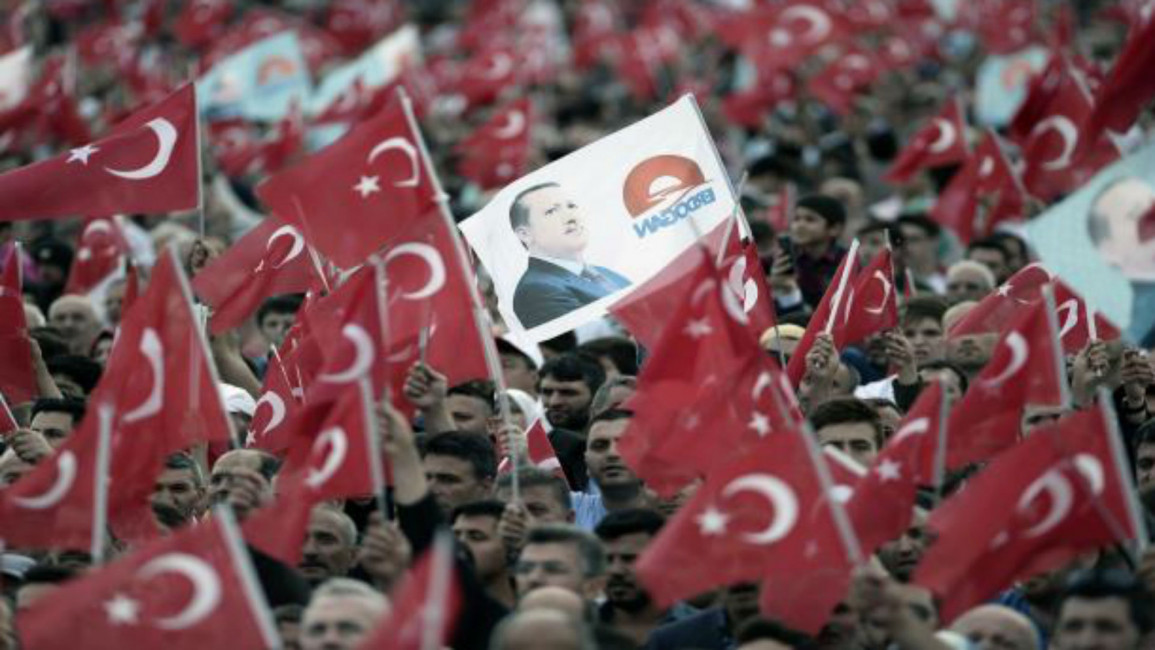
Turkey's democracy puts Arabs to shame
Arab reaction to the results of the Turkish elections in which the AKP party won for the fourth time in a row, albeit a much narrower victory having lost its absolute parliamentary majority which it enjoyed since it first came to power.
To no one's surprise, we looked at the results through the prism of our political prejudices, with supporters of Islamist parties such as the Muslim Brotherhood expressing shock and despair. Laments soon spread on social media networks, in which the sorrowful Arab supporters of the AKP expressed the fear that the revolutions of the Arab Spring are in danger after losing their main backer.
| Turkey has witnessed a glorious affirmation of democracy. |
Those who always opposed the Arab revolutions joyously celebrated the results and revelled at the defeat of Recep Tayyip Erdogan. This camp's media ran headlines such as "electoral setback and a huge defeat to Erdogan" and "Turkey shakes the sultan's throne".
Ironically, even Jihadists weighed in, claiming on social media that Erdogan's electoral losses were a result of him not implementing Sharia, or Islamic jurisprudence
Arab reality
Arab interest in the results of the Turkish elections is understandable, and justified. However we must not forget that Turkey is democratic country run by state institutions, and therefore we cannot project our miserable Arab reality on to this country.
If Erdogan's AKP party had lost and achieved only second or third place in the elections, it would have become the opposition for a number of years until the next election, when it would have had a chance to redeem itself and reclaim power.
If as some hope and others fear, the AKP party had lost the elections, this would not have meant Turkey would have been dragged into a civil war, or that Erdogan would have been thrown in jail, or that his supporters would be hung.
If the AKP had lost, the party would have been forced to concede defeat and would not have called upon the army to take control, called for a foreign intervention or called upon its supporters to demonstrate in the streets. It would have congratulated the winning party and instructed its members how to act as an opposition party.
Turkey has overcome its period of political immaturity and its democratic practices are firmly rooted in its political life. The political awareness of the Turkish people is now the guarantee for the continuation of a healthy and sound political process.
Some might argue the current situation will lead the country into difficult times, as political instability will lead to economic losses like the drop in the Turkish Lira and the fall in stock prices that has taken place over the past few days. This is correct, however it is only temporary. Turks will overcome this stage of instability through their political experience and will not squander their achievement over the past decade.
A democratic deficit
As Arabs, we might be forgiven for our extreme view of events in Turkey, because in reality we have no experience of a peaceful handover of power. That requires political pluralism, free and fair elections and majority rule with the consent of the minority.
We only know totalitarian and despotic rule, one which tramples on the rights of people to self-determination, a type of rule that only uses elections to beautify itself and as a tool to keep a leader in power for his lifetime.
Therefore, as admirers or haters of Erdogan, we thought that it was the end. Some cried while others celebrated. But Turkey has witnessed a glorious affirmation of democracy it should be proud of, and which put us to shame.
Opinions expressed in this article remain those of the author and do not necessarily reflect the opinions of al-Araby al-Jadeed, its editorial board or staff.
This is an edited translation from our Arabic edition.



